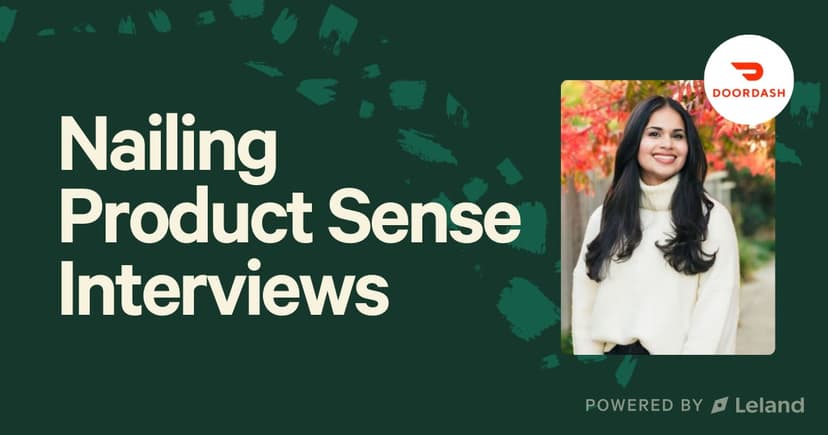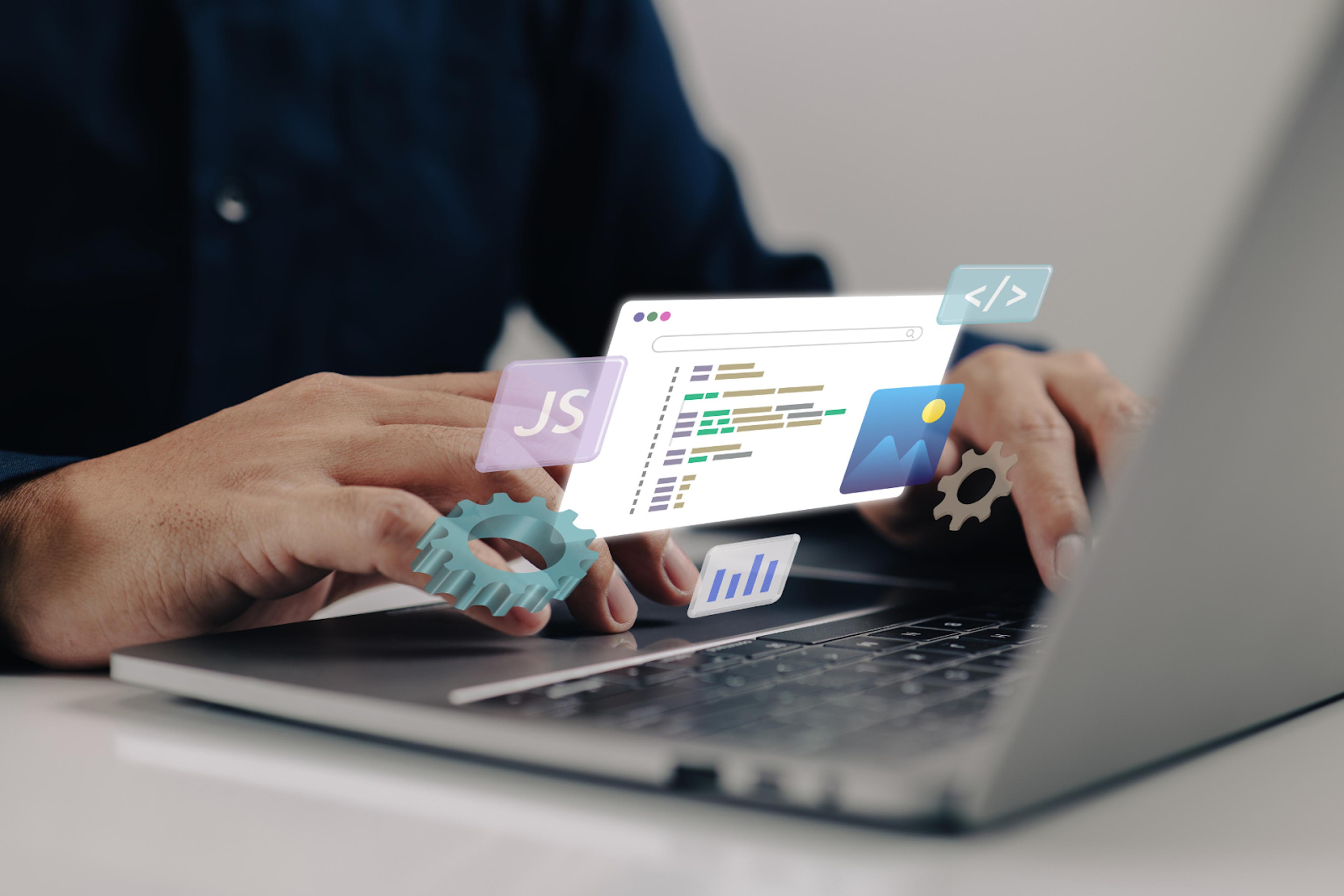Moving Beyond Frameworks: The Secret to Excelling in Product Management Interviews
In the world of product management interviews, one commonly held belief is that mastering certain predefined frameworks is the key to success. Here's why an overreliance on these frameworks can actually be detrimental, and what to do instead.

By Charles T.
Coaching Aspiring PMs to Break In & Mid-Career PMs to Excel
Posted June 13, 2025

Join a free event
Learn from top coaches and industry experts in live, interactive sessions you can join for free.
Table of Contents
Product Management Interview Frameworks: An Introduction
In the world of product management interviews, one commonly held belief is that mastering certain predefined frameworks is the key to success. There is a plethora of resources, like the famous "Cracking the PM Interview," that many candidates use to prepare. While these books offer valuable insights, an over-reliance on them can be detrimental. Let's explore why this happens and how a shift in the approach could significantly improve your performance in these high-stake interviews.
What Are Product Management Interview Frameworks?
Product management frameworks are established processes designed to solve a specific kind of problem. In interviews, these frameworks act as guides–prompting certain actions and behaviors depending on the issue or goal at hand. Examples of common PM frameworks include RICE Prioritization, AARRR “Pirate” Metrics, and the Customer Journey 5Es, among others.
Many interview candidates spend countless hours memorizing frameworks like this. Frameworks can undoubtedly provide a structured approach to answering questions, ensuring you don't miss key details, and conveying your thoughts in an organized manner. But is that enough?
The answer is, not quite.
The Problems With Frameworks
The first issue with an excessive reliance on frameworks is that it can lead to robotic, cookie-cutter responses. Interviewers are experienced professionals and can easily spot a candidate who is regurgitating answers straight from a textbook. They are not looking for textbook answers; they are looking for innovative thinkers and problem solvers.
Secondly, frameworks from books often lack the context that real-life product management situations provide. Every product, company, and market is unique and comes with its own set of challenges. Therefore, a one-size-fits-all approach is inadequate. It's important to show that you can adapt and think on your feet.
Consider the popular concept that most product prioritization questions should be answered based on analyzing the ROI (impact to effort) of an opportunity and careful analysis of cold hard data. While this can be effective in many instances, the B2B space offers a clear counterexample. Sometimes, prioritizing based on a large customer’s request or maintaining an important relationship might outweigh the data-driven decision, given the potential for immediate revenue or long-term strategic alignment.
PM Frameworks: An Alternative Approach
So, how can candidates bridge the gap between structured learning and practical application?
This is where the power of common sense and real-world PM methods comes into play. Product management is a dynamic role, encompassing strategy, design, technology, and business acumen. Successful PMs excel because they know when to leverage a framework, when to innovate, and how to tailor their approach based on the nuances of the situation at hand.
To enhance your preparation, consider real-world scenarios and how you would tackle them. Use the frameworks as a guide, not as an absolute solution. Focus on understanding the principles behind the frameworks and adapting them to each unique scenario. Develop your problem-solving skills by practicing with realistic cases rather than abstract concepts.
As a PM interview coach, my role is to help you navigate this complex landscape. I won’t just teach you the well-known frameworks, but more importantly, I'll help you understand how and when to apply them. We'll focus on honing your critical thinking skills and adapting these frameworks to suit the intricacies of real-world scenarios. With tailored coaching, you can go beyond the textbook and truly stand out in your PM interviews.
Remember, an interview is not a test of your memory but of your abilities as a potential product manager. The ability to use common sense, coupled with a deep understanding of real-life PM methods, will set you apart from the competition.
It's time to move beyond the limited scope of predefined frameworks and embrace a more holistic and adaptable approach to PM interviews. As your coach, I can guide you through this transformation, turning potential pitfalls into opportunities for success. I’d love to help you prepare for your interviews–message me on my Leland profile to get started!

Written by Charles
5.0
(4)
*Currently a Principal Product Manager at Intuit, CFA Charterholder, UCLA MBA, and ex-professional investor at Morgan Stanley & Franklin Templeton* Not only have I been in Product Management for 10+ years, I have also interviewed hundreds of PMs on the other side of the table, and know exactly what hiring teams are looking for in Product Managers at all levels. If you are trying to break into Product Management, SaaS, Fintech, Finance, or tech in general, I can help make sure that happens for you. If you are mid-career and need some general guidance from someone that has pretty much seen and been through it all, I can also help you. I enjoy helping others with career positioning, pivoting into Product, resume building, PM interview coaching … and much more. My background: As mentioned above, I have been in Product Management/Fintech for ~10 years and have a variety of Finance and Product Management roles with well-known companies such as Intuit (where I am now), Workday, Morgan Stanley, GuideSpark (early-stage startup sold to Trivian), and prominent hedge funds and asset management firms. I hold an MBA from the UCLA Anderson School of Management, a CFA charter from the CFA Institute, but most importantly, PM and Fintech experience that not many people have. I love helping people of any background but especially love working with people who are from “non-target” undergrads or those who have a bit of self-doubt. I am here to tell you: YOU CAN DO IT, DON’T LISTEN TO THE HATERS. Yes, product management is competitive… so is everything else that is worth doing. Having started at a non-target school, and then having to pivot from a completely different industry, I can tell you firsthand ALL the paths there are to break into and succeed in Product Management: both traditional and non-traditional. If you’re interested and want more on my credentials: I began my career as a municipal bond trader and research analyst at Franklin Templeton for a ~$70 Billion AUM fund. From there I moved on to Morgan Stanley for a couple of years, completed my CFA charter (all levels on the first attempt), and quickly realized that I could have the most impact in the world by combining my two passions -- finance and technology -- in a technology based product management based role. I cut my teeth in Product and Fintech by building financial products for Dr. Michael Hasenstab at Franklin Templeton. Our combined product suite drew about $150 Billion dollars in client funds at the time). Knowing that ultimately I wanted to move to a pure play technology focused role, I applied to a handful MBA programs across the country and was admitted to Berkely Haas, Duke Fuqua, and UCLA Anderson (which I ultimately attended). I continued my Tech/SaaS/FinTech focused PM career in 2018 and Workday, helping to build out their financials product suite for some of the largest organizations in the world. After about 3 years I moved to Intuit (think products like Credit Karma, Mint, Turbotax, Quickbooks, and Mail Chimp), where I am a Senior Product Manager. I’m a Bay Area native, live in Foster City CA with my wife, and 2 dogs (Theo and George) I love all things Bay Area sports (Warriors, Giants, Niners), playing golf, and all things HBO Max. I'd love to chat with you and look forward to meeting soon!
Charles has helped clients get into organizations like:





























